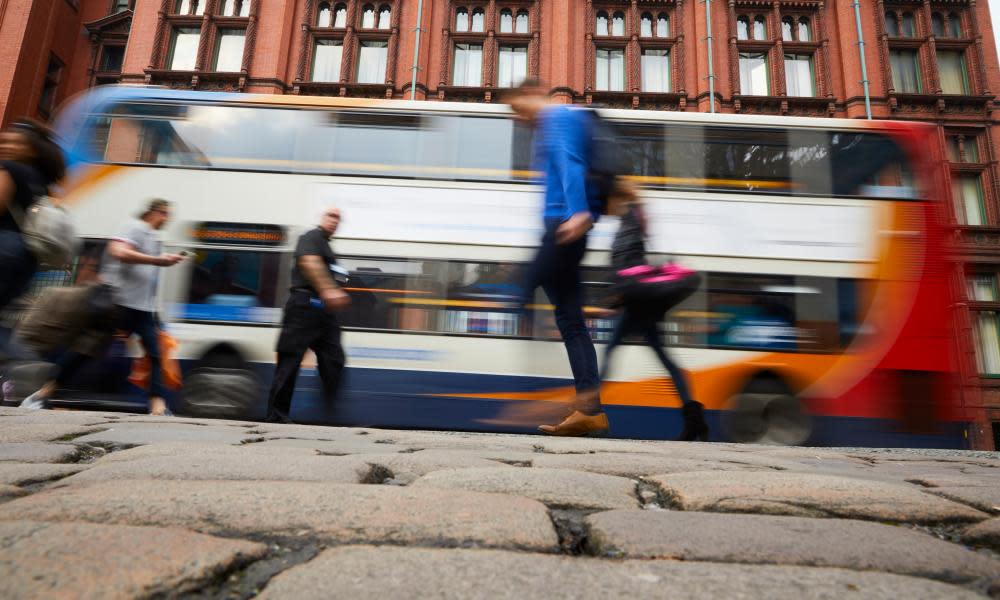Bus firms get £400m bailout to maintain services

Bus companies in England will receive a £400m bailout to ensure that services needed by frontline workers such as NHS staff can keep running.
Transport secretary Grant Shapps said the government would provide £167m over three months, as well as guaranteeing to honour a further £200m of planned investments that would otherwise have been at risk.
A further sum of up to £30m will be reallocated to key services, so that they can keep running for the benefit of people who rely on busesto travel to work or food shops.
The rescue package is considerably less than the £1bn bus companies had been hoping for, but it waswelcomed by the industry.
“We have been very clear during the outbreak that the best way to stop the spread of the virus and protect the NHS, is to stay at home if possible,” said Shapps.
“Our buses are a lifeline for people who need to travel for work or to buy food – including our emergency services and NHS staff – and it’s absolutely vital we do all we can to keep the sector running.
“This multi-million-pound investment will protect crucial local transport links across England, bolstering the sector and minimising disruption for passengers in the long term.”
Services are expected to run at 50% of normal levels, with operators required to balance the lower demand with the need to provide enough buses to ensure that passengers using them can follow social distancing guidelines while on board.
The Department for Transport said councils had also been “encouraged” to maintain subsidies for concessionary fares to ensure that older and disabled people can still travel when they need to, to reach shops, hospitals and doctors’ surgeries.
The bus industry, which carries more passengers than the rail network and collectively employs about 100,000 drivers and 120,000 support staff, has previously called for a £1bn bailout.
But Graham Vidler, chief executive of bus and coach industry group the Confederation of Passenger Transport, welcomed the government’s emergency funding plan.
He said: “Bus operators of all sizes across the country are providing an essential service at a time of national emergency, and we thank the thousands of staff doing an incredible job to keep routes running.
The bus bailout came as National Express announced it would suspend coach services from midnight on Sunday after government measures to stop the spread of the coronavirus hit demand from travellers.
Like other transport operators, the company has already reduced services and experienced a fall in passenger numbers as people heed government advice to make essential journeys only.
Chris Hardy, the managing director of National Express UK Coach, said: “We kept a limited coach network running to be able to help those individuals with essential travel needs, but it is no longer viable to continue to do this.”
The company said journeys booked to take place before midnight on 5 April would go ahead, with the exception of some scheduled to set off on Sunday evening. It did not give a date for services to restart.
Customers have been offered a full refund, or the option of rescheduling their trip for another date within 12 months.

 Yahoo News
Yahoo News 
